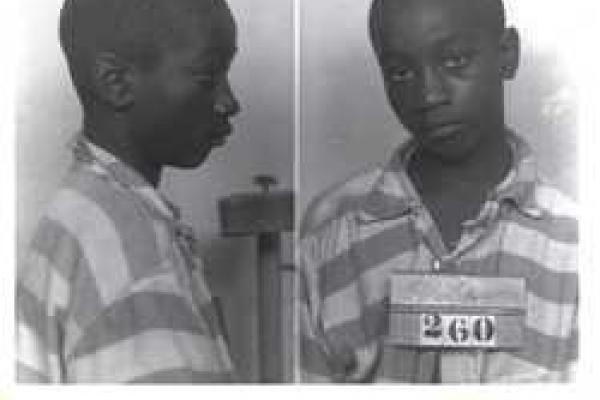The difficulty of restorative justice, is that some things simply can’t be restored.
Certainly, not 14-year-old George Stinney. He’s been dead almost 70 years.
We can however, restore his name — and sometimes, that’s all restorative justice can do. Restorative justice works to make whole what has been unjustly lost and reassemble that which has been unjustly broken, to the greatest degree humanly possible. While we can’t restore 14-year-old George to life, we can both restore his name and work to restore the community responsible for his death.
Often we forget that restorative justice isn’t just about restoring the one who was wronged; the one who committed the wrong is also need of restoration. In this case, the latter is the state of South Carolina.
Towards the end of WWII, 14-year-old George Stinney was accused of killing two white girls. His family couldn’t afford good legal representation (as is often the case in capital crimes), and his lawyer neither called witnesses nor cross-examined witnesses for the prosecution. The trial lasted less than three hours, and the all-white male “jury of his peers” convicted him in under 10 minutes of deliberation; 83 days after his arrest, he was dead.
In the most disgusting form of irony — a Bible — yes, the book that commands that we “love mercy,” was used in his execution. According to Wikipedia and other sources, young Stinney at just 14 years old didn’t fit in the electric chair. At just 5’1” and 95 lbs., the child’s frame wasn’t exactly a good fit for “Old Sparky.” In order to prop him up so that he could be properly secured to the electrodes, a Bible was actually used as a booster seat. Yes, we literally fried a child using a Bible to prop him up.
Sick.
Today, seekers of restorative justice are trying something novel: they’re seeking a new trial for Stinney in order to clear his name. Unfortunately, the circuit solicitor maintained in arguments that the justice system “worked properly,“ but my hope is that the judge will disagree when he rules in the near future. I long that Stinney will receive a new trial not because I think it is simply important to restore Stinney’s name — I also think it is important for the same system that killed him to be restored — by at least admitting that what happened was wrong and taking steps to ensure it never happens again.
In some cases, that’s all that can be done.
Here’s the lesson I think we can learn from this: as Jesus followers, we’re not simply called to seek restoration of broken people but of broken systems as well.
This is perhaps what I feel is one of the aspects of following Jesus that the previous generation often missed — the vastness of our roles as “ministers of reconciliation.”
In my previous version of Christianity, our focus was always on reconciling people to God but reconciling little else. However, a holistic picture of what it means to “do justice” and peruse reconciliation is so much bigger. Paul tells us that God was in Jesus and that through the cross, God was reconciling all things to God's self.
The term “all things” literally means “all things.”
Which means, when we simply focus on reconciling people to God, we’re missing how big the picture is.
Instead of simply focusing on reconciling people to God, we must also focus on reconciling people to other people. This can be on an interpersonal relational level but may also mean fixing broken systems which set people apart and make them unequal– such as the system that killed George Stinney. Too often we are sent the message that we’re most doing the work of God when we proclaim God — but I believe we’re also doing the work of God when we seek to restore broken and unjust social systems that keep us from experiencing God’s shalom. The ultimate truth is that (contrary to what I was taught) pastors and missionaries aren’t the pinnacle of doing “God’s work” — justice seekers and activists are every bit of a participant in God’s divine story of reconciliation.
Be a justice seeker — and seek to restore God’s shalom whenever you find it broken. Because when you do, you’re participating in a divine story to reconcile “all things.”
Including broken social systems.
Benjamin Corey is a two-time graduate of Gordon-Conwell Theological Seminary and current Doctor of Missiology student at Fuller. He is the dad of two girls adopted from Peru, and the co-founder of the Not Here Justice in Action Network as well as the Scholar in Residence for the Foundation for Hope and Grace.
Got something to say about what you're reading? We value your feedback!
